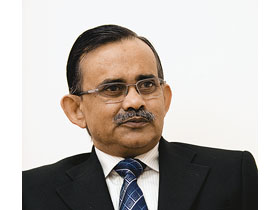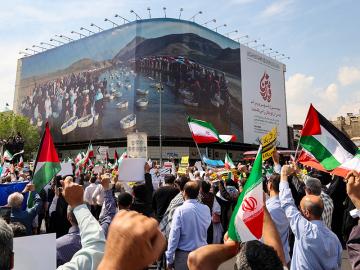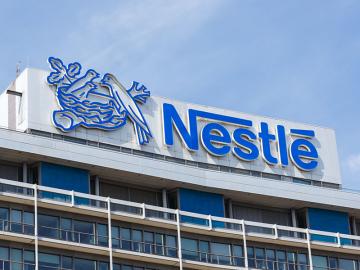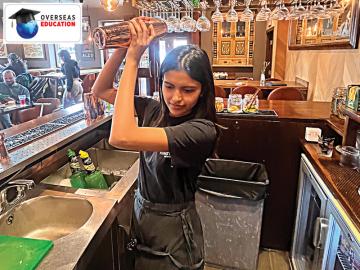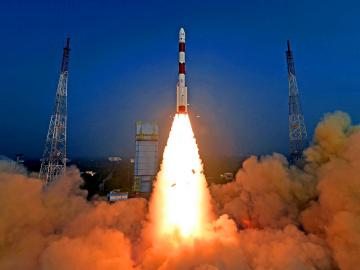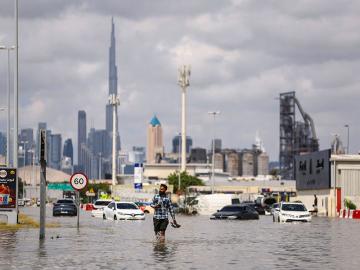
Oil Exploration is Binary
Bharat Petroleum has struck oil off Brazil's coast. Forbes India asks chairman and managing director Ashok Sinha how significant the find is for the company's future
Name: Ashok Sinha
Title: Chairman and managing director, Bharat Petroleum Career: Has been on the boards of joint ventures and subsidiary companies of BPCL. Chairman of the Board of Numaligarh Refinery limitedand of Bharat Oman Refineries Limited and Oman Oil Company. Director on the Board of Petronet LNG Limited.Education: B Tech (Electrical) - IIT Kanpur, MBA (finance) IIM BangaloreInterests: Reading historical fiction and investing in Z group stocksPre-salt (because they lie under a shifting layer of salt) oil discovery in the Brazillian offshore is being toasted as the find of the decade. How big is this one?
The well is still being drilled; we are at 5,300 metres now and will reach the target depth only in mid-December. We have encountered more than 90 feet of high quality rock that can deliver oil to the well. This is very similar to Wahoo 1, about 8 km away. The results are very encouraging, but we are still testing and will know by January.
Does this open up more doors for opportunities in the region?
Offshore Brazil is as good as closed for foreign oil companies now — the national oil company, Petrobras has the right of first refusal for all the blocks. We tried getting into another block in the region, but were not able to because of their pre-emption rights. New bills being discussed in parliament there declare oil in the new fields to be the property of the state, rather than of companies buying into the concessions. Fortunately, we already have nine more blocks, which we bought from the Canadian company Encana. These will keep us busy for the next three or four years.
What about the funding for the development of the block where you have found oil?
The money will have to be raised overseas. We raised $100 million debt last year — as a matter of fact, on the day that Lehman collapsed. This was to make payments for these blocks for BRPL Brazil. We will have to evaluate the funding based on how big the development plan will be.
BPCL set up an oil exploration subsidiary three years ago. How successful have you been?
We set up Bharat Petro Resources Limited (BRPL) in 2006. Progress has been slow. We have 27 blocks in eight countries. Rather than going into completely uncharted areas, our strategy has been to farm into [pick up a stake in] blocks where 2-D and 3-D [dimensional] studies have already been carried out and at least one well has been drilled. Results have been mixed. In the North Sea, we have gas flowing, but it is not commercially viable at current rates. Similarly, in Oman we have found some oil, but not enough. It is all about luck. In Assam, we had a block with Premier oil, there was gas all around, but we didn’t find anything. We have been very lucky in Brazil. Our blocks were new exploration play, located not in the main prolific Santos basin, but very near it. We’ve had good hydrocarbon shows in both wells. At the end of it, oil exploration is binary — 0 or 1; either find or don’t; no in-between.
How important is it for BPCL to have oil production?
We are looking at securing 30 percent of the crude volume that we need for all our refineries. We need about 400,000 barrels for our two refineries. We hope to build up expertise in these blocks, so we can bid as operators in the future.
How long will it take for BPCL to get into Operator phase, to gain the experience to manage and operate oilfields?
We are learning the game. We have already moved up as operator in a small way in one block in Rajasthan, where we have a partnership with HOEC [Hindustan Oil Exploration Company]. We are currently in consolidation mode. We have to keep getting out of blocks that are not getting anywhere and put our resources where the prospects are good.
(This story appears in the 18 December, 2009 issue of Forbes India. To visit our Archives, click here.)
Post Your Comment
